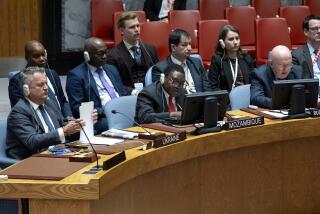Human Rights
- Share via
Thanks to American public opinion, presidential initiative and bipartisan congressional support, the United States has succeeded in making human rights a prominent item on the agenda of the Soviet-American summit.
While the Soviet Union in recent months has been less restrictive toward those wishing to emigrate, much more remains to be done. There are still many in the Soviet Union, Jews and non-Jews, who want to emigrate but are not yet permitted to do so. Some are denied exit visas on the grounds that their parents have not signed the required forms. Others are denied exit visas because they allegedly possess state secrets. Within the Soviet Union, employers and institutions of higher learning continue to discriminate against Jews. In addition, the government does not accord Jews the same rights of religious and cultural expression afforded other minority groups.
The Moscow summit provides an opportunity for President Reagan to assure Mikhail Gorbachev that Americans appreciate the human rights progress that the Soviet Union has made. President Reagan should encourage Gorbachev to move even further in this direction, toward unrestricted emigration and full religious and cultural rights for all Soviet minorities. Such a step would contribute to an easing of bilateral tensions and further improvement in Soviet-American relations.
CATHY R. MENDELSON
President
American Jewish Committee
Los Angeles Chapter
More to Read
Get the L.A. Times Politics newsletter
Deeply reported insights into legislation, politics and policy from Sacramento, Washington and beyond. In your inbox twice per week.
You may occasionally receive promotional content from the Los Angeles Times.










